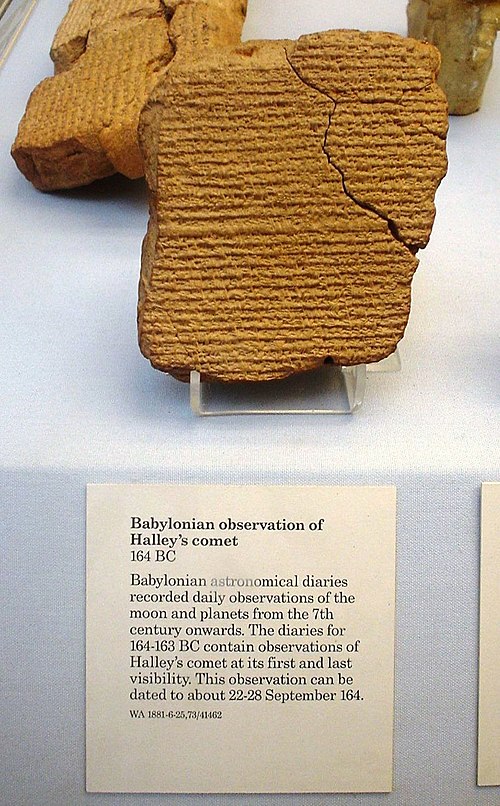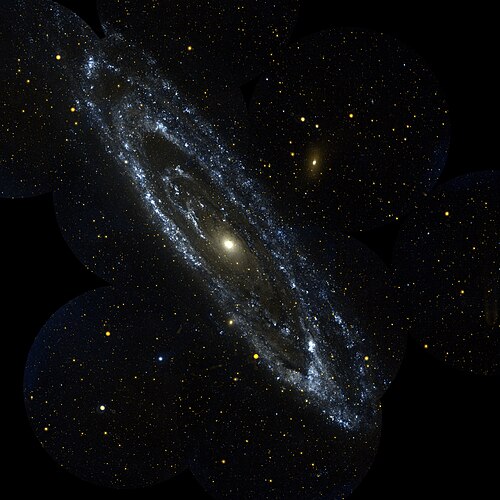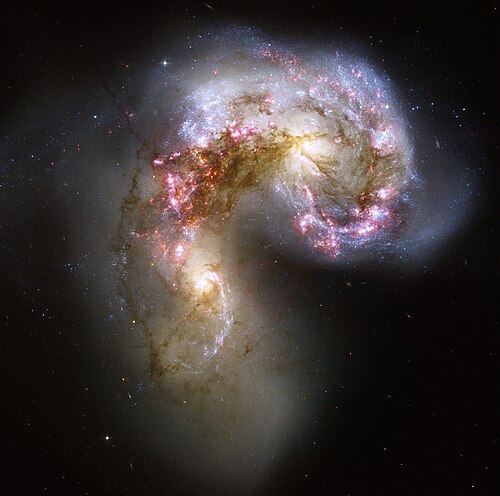Constellationnoun
(astronomy) An asterism, an arbitrary formation of stars perceived as a figure or pattern, or a division of the sky including it, especially one officially recognised by astronomers.
Constellationnoun
Any of the 88 regions of the sky officially recognized by the IAU, including all stars and celestial bodies in the region.
Constellationnoun
An image associated with a group of stars.
Constellationnoun
(astrology) The configuration of planets at a given time (notably of birth), as used for determining a horoscope.
Constellationnoun
(figuratively) A wide, seemingly unlimited assortment.
Constellationnoun
(spaceflight) A fleet of satellites of the same purpose such as the set of GPS satellites, or Iridium satcom fleet.
Constellationnoun
A configuration or grouping.
Constellationnoun
A network of connections that exists between people who are in polyamorous relationships, for example between one person, their partner, and that person's partner.
Constellationnoun
A cluster or group of fixed stars, or division of the heavens, designated in most cases by the name of some animal, or of some mythologial personage, within whose imaginary outline, as traced upon the heavens, the group is included.
Constellationnoun
An assemblage of splendors or excellences.
Constellationnoun
Fortune; fate; destiny.
Constellationnoun
an arrangement of parts or elements;
Constellationnoun
a configuration of stars as seen from the earth
Constellationnoun
a group of stars forming a recognizable pattern that is traditionally named after its apparent form or identified with a mythological figure.
Constellationnoun
a group of associated or similar people or things
Constellation
A constellation is an area on the celestial sphere in which a group of visible stars forms a perceived outline or pattern, typically representing an animal, mythological person or creature, or an inanimate object.The origins of the earliest constellations likely go back to prehistory. People used them to relate stories of their beliefs, experiences, creation, or mythology.
Galaxynoun
The Milky Way; the apparent band of concentrated stars which appears in the night sky over earth.
Galaxynoun
(galaxy) Any of the collections of many millions or billions of stars, galactic dust, black holes, etc. existing as independent and coherent systems, of which there are billions in the known universe.
Galaxynoun
The Milky Way, that luminous tract, or belt, which is seen at night stretching across the heavens, and which is composed of innumerable stars, so distant and blended as to be distinguishable only with the telescope.
Galaxynoun
A very large collection of stars comparable in size to the Milky Way system, held together by gravitational force and separated from other such star systems by large distances of mostly empty space. Galaxies vary widely in shape and size, the most common nearby galaxies being over 70,000 light years in diameter and separated from each other by even larger distances. The number of stars in one galaxy varies, and may extend into the hundreds of billions.
Galaxynoun
A splendid or impressive assemblage of persons or things; as, a galaxy of movie stars.
Galaxynoun
a splendid assemblage (especially of famous people)
Galaxynoun
tufted evergreen perennial herb having spikes of tiny white flowers and glossy green round to heart-shaped leaves that become coppery to maroon or purplish in fall
Galaxynoun
(astronomy) a collection of star systems; any of the billions of systems each having many stars and nebulae and dust;
Galaxynoun
a system of millions or billions of stars, together with gas and dust, held together by gravitational attraction.
Galaxynoun
the galaxy of which the solar system is a part; the Milky Way.
Galaxynoun
a large group of impressive people or things
Galaxy
A galaxy is a gravitationally bound system of stars, stellar remnants, interstellar gas, dust, and dark matter. The word galaxy is derived from the Greek galaxias (γαλαξίας), literally , a reference to the Milky Way.






































